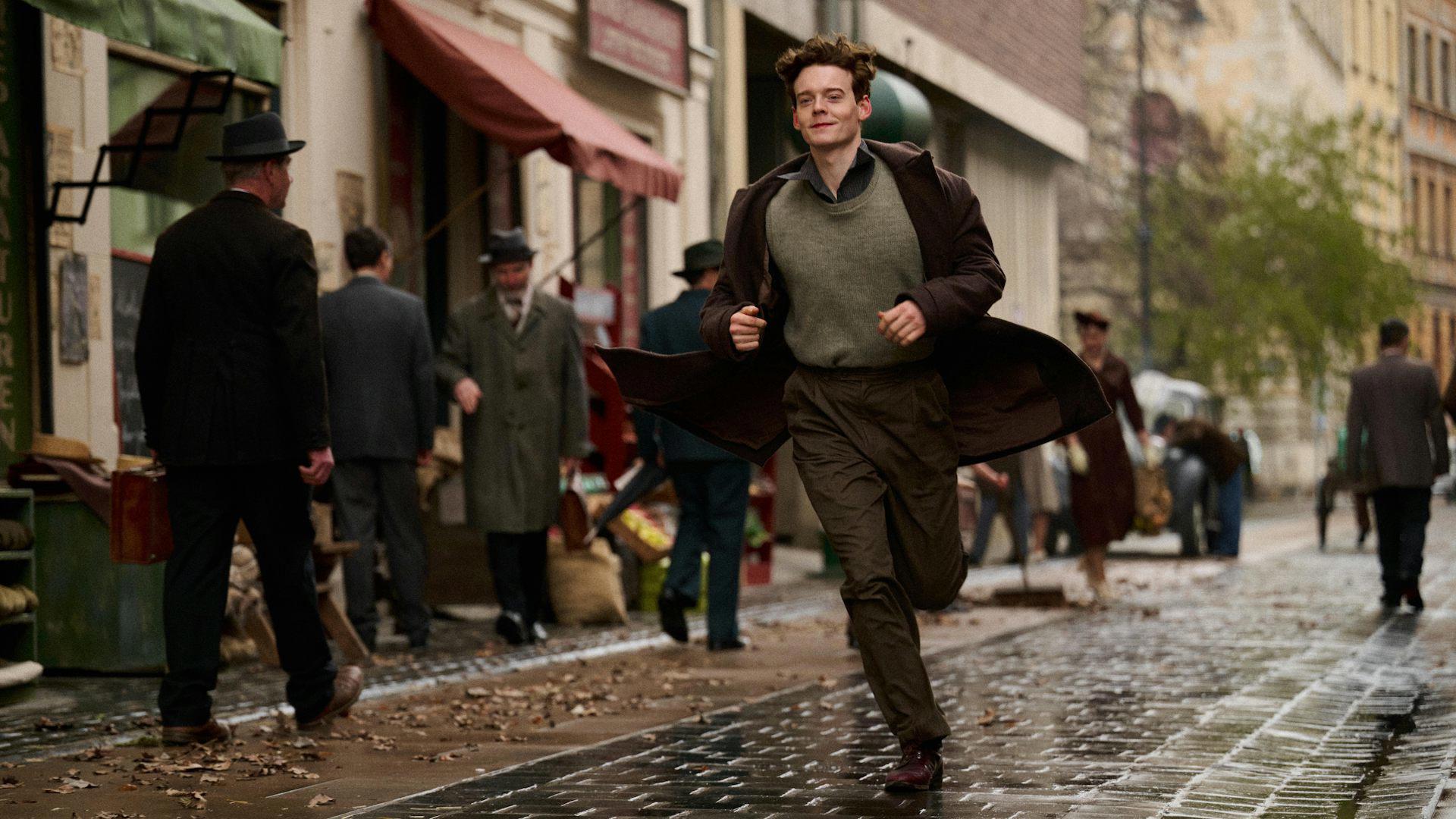
Desperate Journey: Wartime Cliches Overwhelm This Extraordinary True Account
At best, these claims remind us that – however fantastic or horrific – these events were once realities for other people very much like ourselves. At worst, they exercise a kind of moral blackmail: guilt tripping the audience into thinking that criticising the film's storytelling somehow disrespects the real people who endured those traumatic events.
Every story of Holocaust survival and rescue is unique and, against the backdrop of ubiquitous slaughter, uniquely miraculous. Annabel Jankel's new film Desperate Journey, based on the experiences of Austrian-born Holocaust survivor Freddie Knoller (1921-2022), is certainly as extraordinary a story as any.
Freddie (played by Lucas Lynggaard Tønnesen) escaped his parents' fate through a circuitous and often picturesque journey across Nazi-dominated Europe, ultimately landing late in the war in Auschwitz-Birkenau and surviving a death march.
Such accounts can all too easily topple into cliches of wartime derring-do, or fall victim to sentimentality and sensationalism. What inoculates them against these perils is precisely the unique and often tiny details that ground wildly improbable tales of survival in gritty reality. (The French film-maker Claude Lanzmann, best known for the Holocaust documentary film Shoah, once remarked that“there is more truth for me in some trivial confirmation than in any number of generalisations about the nature of evil”.)
However, Desperate Journey – which focuses almost exclusively on the most colourful part of Freddie's tale, his time working under a false identity in German-frequented nightclubs in occupied Paris – leaves out almost all of this granular detail. As a consequence, it ends up feeling almost as divorced from the hard-to-fathom realities of the Holocaust as much-derided fantasies like The Boy in the Striped Pyjamas (2008)
The trailer for Desperate Journey.
For example, shortly after Freddie's escape from Austria, at the urging of a friendly farmer's wife (Niamh Cusack), he burns his Austrian passport, stamped with the lethal“J” (for Jew). From this point on he is stateless and without papers in a continent-wide trap. But, bar a narrow escape on board a train, in the film his fugitive status seems to cause him remarkably few problems.
Numerous survivor accounts attest to the grinding daily fear and the incessant improvisation needed to stay one step ahead of the Gestapo. Yet courtesy of a friendly Jewish landlady and a tolerant employer, Freddie enjoys a life – albeit precarious – of sleazy glamour in the demi-monde of wartime Parisian nightclubs and brothels.
Despite a screenplay by Michael Radford (1984, Il Postino), and handsome if somewhat overblown production design, almost nothing in Freddie's story has a ring of authenticity. Nazi officers are uniformly leering sadists. The nightclub dancer (Sienna Guillory) with whom Freddie strikes up an ill-starred and dramatically unconvincing romance performs improbably elaborate routines that evoke Josephine Baker and harbours her own tragic secret to match Freddie's. The French Resistance fighters he encounters are hard but honourable tough guys in leather jackets and crew-neck sweaters (including an enjoyably hammy turn from Steven Berkoff).
Viewers who favour historical precision will be dissatisfied to find Freddie fleeing Austria days after the March 1938 Anschluss and arriving apparently a few weeks later in occupied Paris (France surrendered to Germany in June 1940; the real Freddie Knoller spent two years in Belgium before fleeing to France ahead of Hitler's advancing armies).
To those with an aversion to cliche, Freddie's arrival there, emerging from the Metro to the strains of accordion music and the overtures of improbably glamorous street prostitutes and a cartoonishly Mephistophelian pimp (Fernando Guallar), will be equally grating.
Lucas Lynggaard Tønnesen as Freddie. Warner Bros
Perhaps the film's most fatal flaw is its refusal even to try to dramatise the trauma that Freddie – only 17 when his six-year trans-European odyssey began – underwent. He sees his family torn apart, sees his companions mown down by German border guards, lives with the ever-present threat of capture and deportation, and ultimately survives (offscreen) the death factory of Auschwitz and the nightmare of the death marches. Yet his principal character note, from early on in the film, is his adolescent fascination with the imagined lubricious pleasures of Parisian nightlife. His exploits there play more as a slightly risky caper than a struggle for survival.
Desperate Journey feels like a throwback – a 1950s Hollywood version of the war. It is far too light and conventionally melodramatic to hold up against decades of scholarship and public understanding of the real costs of survival amid inconceivable terror and against overwhelming odds.
Looking for something good? Cut through the noise with a carefully curated selection of the latest releases, live events and exhibitions, straight to your inbox every fortnight, on Fridays. Sign up here.

Legal Disclaimer:
MENAFN provides the
information “as is” without warranty of any kind. We do not accept
any responsibility or liability for the accuracy, content, images,
videos, licenses, completeness, legality, or reliability of the information
contained in this article. If you have any complaints or copyright
issues related to this article, kindly contact the provider above.


















Comments
No comment